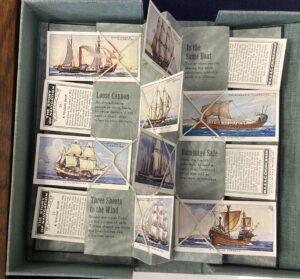 I’ve been asked by a number of readers whether this blog is about to shut down, as I retire. Short answer: I hope not!
I’ve been asked by a number of readers whether this blog is about to shut down, as I retire. Short answer: I hope not!
First, I am pleasantly surprised, even mildly astonished, that so many of you read this blog weekly. Second, I plan to continue the blog as long as the University will have me. I resume part-time teaching next term as a faculty member in our School of Professional and Continuing Studies, whose faculty and students have nominated more than a few words and metaphors here over the years. My research on student use of AI and its effect on writing instruction will continue as well, and I’m certain we’ll have new terms from the burgeoning new technology.
At least for now, this post is not my swan song. It’s a curious metaphor I first encountered when a head-banging teen who loved (Living! Loving!) Led Zeppelin. Their record label was Swan Song, and even then I knew that the metaphor signified a final act. It’s been a long time since my last reading of Plato’s Phaedo, but as Wikipedia reminds us, in it Socrates “says that, although swans sing in early life, they do not do so as beautifully as before they die.” Others in Antiquity and after carried that torch (there’s another metaphor!).
It surprises me that this month’s metaphor has endured so long without interruption or corruption; it can be found on the lips of those who never read Plato. Incidentally, I saw many swans (and adorably fluffy cygnets) in Limerick Ireland this year, but none were singing and I’m happy to report that none died, at least while I was watching them.
I suppose the beauty of the bird and the poignancy of the metaphor keep it vital. We end up with a final act both tragic and lovely, one very different from the metaphor of the black swan I covered four long years ago, at the very start of the pandemic that altered our lives so profoundly. My own heart had been broken four years earlier, when my favorite musician (sorry Led Zep) David Bowie released his album Blackstar on his birthday, just two days before he died. It was a deliberate act, and press accounts rightly called this important final artistic statement a Swan Song.
That’s eight years and two very different swans. How quickly they glide by! What will the next eight bring? If I’m still here and there’s interest, I’m certain we will not run out of words or metaphors.
Throughout the holidays and into 2025 this blog will continue, so send words and metaphors, seasonal or not, to me at jessid -at- richmond -dot- edu or by leaving a comment below. See all of our Metaphors of the Month here and Words of the Week here.
Image Source: The Singing Swan (1655) by Reinier van Persijn, courtesy of Wikipedia.









